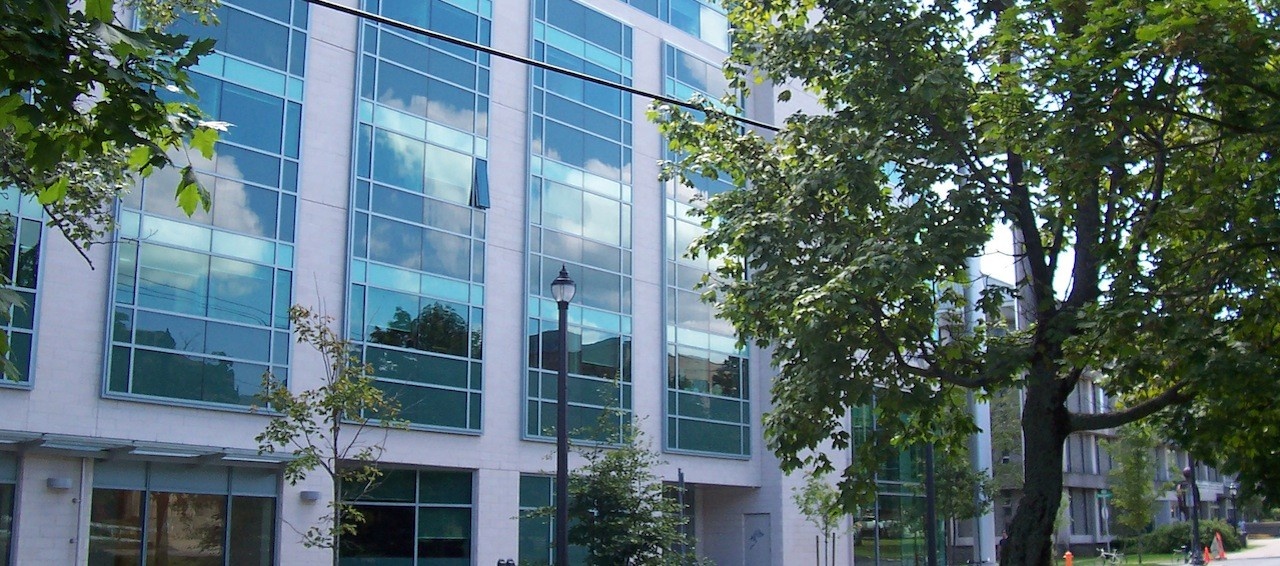Kateryna Rudenko
 |
SRES program:MES Educational background:Bachelor of Arts in International Relations, Social Communications and Regional Studies from National University of "Kyiv-Mohyla Academy" �� |
Building Bridges Between Academic and Personal: The Journey of Kateryna Rudenko at SRES
Kateryna Rudenko’s path to the School for Resource and Environmental Studies (SRES) at Dalhousie University is as unique as it is inspiring. Currently finishing her first year in the Master’s program, Kateryna's journey from Ukraine to Canada has been marked by resilience, passion, and a profound commitment to furthering her education. Her story is a testament to the transformative power of education and the importance of interdisciplinary approaches in understanding feelings of belonging and connection to land.
Kateryna's academic journey began with a major in International Relations in Ukraine. She had a broad interest in environmental issues but was particularly drawn to the intersection of social science and environmental studies. “To me, Ukrainian understanding of land and nation has always transcended the boundary between disciplines; I knew I needed something interdisciplinary,” she recalls. This interest led her to apply for a Mitacs research internship in Canada in 2021, which ultimately brought her to SRES.
Her arrival in Canada coincided with the Russian invasion of Ukraine that prevented her return to her homeland. Kateryna seized the opportunity to extend her stay through various grants and continued working as a research assistant at SRES. This period was crucial for her academic and personal development. "Throughout this time I realized how influential my personal experience, connection to my family, ancestors, and nation was in my research interests," she explains.
Kateryna’s research is deeply rooted in her experiences and values. Her current project is an autoethnography of the experience of being Ukrainian in Canada during the Russian invasion. This personal and poignant study reflects her broader interest in social justice, and the human dimensions of environmental issues, particularly sharing personal stories as a way to build relationships and heal from the grief of losing a home.
Her previous work includes significant contributions to Melanie Zurba’s projects at SRES, such as the “Learning for Governance” initiative and a large-scale project on climate grief. Kateryna helped with the creation of the photovoice exhibition, which features photographs and QR codes that capture the thoughts and feelings of young environmental activists about climate change. "These are photos with QR codes, you can scan them and see what environmentally active youth think about climate change and how that makes them feel," she explains. This exhibition is a tangible example of how her contributions connect academic research with personal testimonies.
Kateryna’s experience at SRES has been transformative, both academically and personally. One of the key strengths of the SRES program, she notes, is its interdisciplinary approach and the respectful, supportive environment it fosters. She recalls attending her first Master’s defense at SRES and being struck by the respect and dialogue involved. "I saw defense for the first time as an active communications piece," she says. "Not so much to defend your skills and passions from someone who’d question them, as to create this equitable dialogue on equal terms about what you've done."
This emphasis on dialogue and interdisciplinary collaboration has been a defining feature of her time at SRES. The diverse backgrounds of faculty and students create a rich environment for learning and growth. Kateryna appreciates the opportunity to engage with different perspectives and asks questions that challenge conventional thinking. "Interdisciplinary skills are important, and SRES provides that. I can easily get feedback on my work from researchers who contribute to a diversity of fields. Many voices, but simultaneously, there’s harmony," she affirms.
Kateryna’s perspective on environmental issues is profoundly influenced by her background and experiences. She believes that sustainability is a deeply reflective practice, rooted in one’s relationship with their land, culture, and community. "To reflect on your relationship with land is impossible without reflecting on the relationship with your roots, your nation, where you come from."
Her work is driven by a desire to connect personal values with broader academic and societal goals. This reflective approach is particularly significant given her experience of displacement and the ongoing war in Ukraine. It has shaped her understanding of decolonial justice and how it relates to human-nature relationships. For prospective students considering SRES, Kateryna’s advice is clear: "Critical thinking...you should be at least a little bit infatuated with critical discourse."
As she continues her studies and research, Kateryna remains committed to making a meaningful impact. Her story is a powerful reminder of the importance of resilience, passion, and the pursuit of knowledge in the face of adversity.
